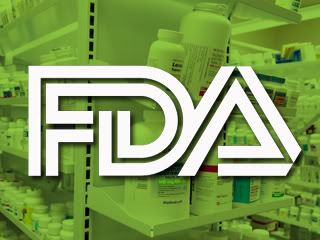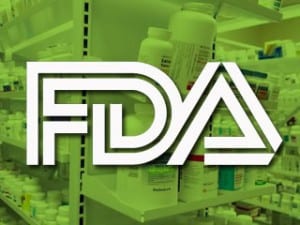 The FDA ignored or overlooked red flags prior to fumbling a powdered infant recall. Similac, Alimentum, and EleCare had a history of violations, so why did it take so long to pull these troublesome products from the market?
The FDA ignored or overlooked red flags prior to fumbling a powdered infant recall. Similac, Alimentum, and EleCare had a history of violations, so why did it take so long to pull these troublesome products from the market?Last fall, the FDA learned a Minnesota baby had been hospitalized three weeks for a deadly foodborne pathogen called cronobacter sakazakii. The child became ill after being fed powdered infant formula made by Abbott Nutrition.
Related: FDA warns of certain powdered infant formulas
The same week the FDA learned about that case, it sent an inspector to Abbott’s Sturgis, Mich. plant which made the formula. Records show the inspector uncovered numerous violations of regulations meant to prevent contamination with the rare but potentially deadly bacteria. The agency had seen a similar issue at the plant just two years earlier.
However, those problems came to the public’s attention only last month after the FDA and Abbott issued a sweeping recall over concerns of bacterial contamination in certain Similac, Alimentum, and Elecare infant formulas, along with other products.
Consumer Reports notes that experts say: “[T]he four-month delay between last fall’s inspection and the recall raises serious questions about the FDA’s ability to police the infant formula marketplace.”
CR reported that the FDA decided to warn consumers about the products only after an inspection found cronobacter in several places at the manufacturing facility. FDA noted that Abbott’s own records showed the company had previously destroyed products after finding cronobacter.
Three Illnesses, One Death, More
The FDA’s inspection was triggered by three illnesses and one death related to cronobacter, as well as salmonella Newport in infants who ate powdered formula from the plant.
After reviewing the events and federal regulations, CR suggests FDA could have responded much sooner.
It’s unclear why the FDA’s September inspection didn’t cite Abbott’s records of having destroyed products due to cronobacter contamination, which Abbott told CR took place in June 2020.
Infant formula manufacturers are required to make testing records available to the FDA upon request. The agency can trigger a mandatory recall if it finds an infant formula presents a health risk.
Experts say the agency’s findings during the inspection last fall alone should have been enough for the FDA and Abbott to warn consumers about potential contamination.
Deadly Baby Food
“This bacterium is known to be extremely deadly to babies,” says Mitzi D. Baum, chief executive officer of Stop Foodborne Illness, a nonprofit group. “It is distressing that the facility was cited in September 2021 for unsanitary conditions, about the time when the first illness was reported.”
Besides three illnesses and one death reported earlier, other bad news has surfaced. Early this year, the West Virginia Department of Health & Human Resources linked a fifth infant injury case to the formula. The child had developed a salmonella infection after ingesting a recalled product.
A spokesperson for Abbott, Ellen Wichman, told CR that the company conducts “extensive quality checks” on every batch of infant formula. That includes testing products for cronobacter and salmonella, said Ms. Wichman, “[A]nd they must test negative before any product is released.”
The FDA notified Abbott about the four complaints, said Ms. Wichman, and tests of related product samples were negative for cronobacter and salmonella in each case. The agency said the complaints were received from Sept. 20, 2021, to Jan. 11, 2022.
Testing in mid February found cronobacter in “non-product contact areas” in the facility, Ms. Wichman added. She said Abbott “took immediate corrective action, including a voluntary product recall on February 17.”
The tests didn’t detect salmonella, said the company, and neither pathogen was detected in shipped products.
“We value the trust parents place in us for high-quality and safe infant nutrition,’ said Ms. Wichman, “and we’ll do whatever it takes to keep that trust and resolve this situation.”
Though an FDA spokesperson said the agency was continuing to investigate, there was no record, according to Consumer Reports, of FDA’s sending an inspector back to the plant until late last month.
Repeat Violations
The FDA says that infant formula manufacturers must abide by specific FDA regulations, which exist in part to “prevent the manufacture of adulterated infant formula.”
Infant formula makers are also supposed to be held to stringent oversight; thus the FDA inspects them more frequently than other food manufacturers.
Meanwhile, companies must also test for contamination, looking specifically for cronobacter and salmonella, because both pathogens have “a documented association with powdered infant formula,” according to the FDA.
FDA’s Priors
Two years before the FDA’s September 2021 visit, however, an FDA inspector found Abbott’s Michigan facility had failed to test a representative sample for salmonella at the final stage of the production cycle.
Asked about that 2019 inspection, the Abbott spokeswoman said, “We took immediate corrective action and are continuing to follow all safety and quality protocols.”
More visits found more problems. The FDA’s 2021 inspection found other violations of the infant formula manufacturing regulations at Abbott’s facility. Specifically, the FDA found that company personnel failed to wash their hands before working with raw materials and infant formula.
Unclean, Unsanitary Conditions
Agency records documented a pattern of problems. “You did not maintain a building used in the manufacture, processing, packing, or holding of infant formula in a clean and sanitary condition,” wrote the FDA in a summary of the inspection findings.
Copies of the full inspection reports were not immediately available online with the FDA’s comments. Once the severity of the situation became known, the FDA should have essentially set up shop at the facility and worked to resolve the problems, said Brian Ronholm, Director of food policy at Consumer Reports.
The FDA was slow to act in regard to dangerous contaminants in baby food formula. It wasn’t the first time the agency was too slow to save others from pain or death, and unfortunately it will likely not be the agency’s last failure.
Consumer beware, indeed, especially after Consumer Reports is able to write a paragraph like this to show the agency’s foot dragging is topped only by its disingenuously late acknowledgement of contamination:
“It wasn’t until after the FDA received the three additional reports of illness—two for cronobacter and one for salmonella—and launched a follow-up inspection late last month that it acknowledged Abbott’s records of prior contamination with cronobacter.”
RELATED
- Infant Formula Lawsuit (NEC) Necrotizing Enterocolitis
- Toxic Baby Food Lawsuit
- Premature Infant Formula killed Baby, claims Illinois Lawsuit
- Baby Food contains Toxic Heavy Metals, FDA failed to warn of risk

by Matthews & Associates




